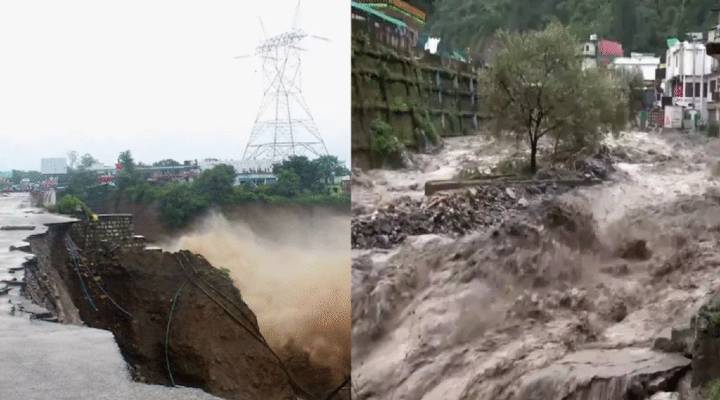When Disasters Strike: Protecting Your Mind Through Environmental Chaos

The air tastes of fear, and our children ask why the sky is angry.
We are not alone in this storm – together, we find our strength.
Introduction
The smoke-filled skies above North India tell a story we know too well. Whether it’s flooding that swallows entire villages, air pollution that burns our throats, or extreme weather that displaces families overnight, we’re living through an environmental crisis that touches every aspect of our lives.
But there’s something we don’t talk about enough: how these disasters affect our minds and hearts. When the ground beneath our feet feels unstable, our mental health suffers too.
The Hidden Impact We Can’t Ignore
Research shows that around 70% of disaster survivors experience significant psychological stress, with symptoms including depression, anxiety, and PTSD. In India, studies following major disasters found psychiatric conditions in 59% of survivors, with PTSD affecting 23% and major depression affecting 21%.
These aren’t just numbers. They’re our neighbors, our children, our elders struggling to sleep at night, feeling overwhelmed by uncertainty, or withdrawing from daily life.
Quick Mental Health Tips for Crisis Times
If you’re feeling anxious, overwhelmed, or emotionally drained, here are immediate steps that can help:
- Practice the 5-4-3-2-1 grounding technique: Name 5 things you can see, 4 you can touch, 3 you can hear, 2 you can smell, and 1 you can taste. This brings you back to the present moment.
- Limit disaster news to 30 minutes daily: Stay informed, but protect your mental space from constant negative updates.
- Maintain small daily routines: Even if everything feels chaotic, brush your teeth at the same time or drink your morning tea in the same spot.
- Connect with one person daily: A phone call, a wave to a neighbor, or sharing a meal keeps isolation at bay.
- Focus on what you can control: Clean one corner of your home, help a neighbor, or organize relief supplies.
Simple Breathing Exercise for Immediate Relief
When panic or overwhelming emotions hit:
- Inhale slowly for 4 counts through your nose
- Hold your breath for 4 counts
- Exhale slowly for 6 counts through your mouth
- Repeat 5 times
- Place one hand on your chest, one on your belly – focus on the belly rising
How Communities Can Help
We’ve always been stronger together. Here’s how we can support each other:
- Check on vulnerable neighbors: Elderly people, pregnant women, and those living alone need extra support during crises.
- Share resources and information: Coordinate mask distribution, share clean water sources, or create community WhatsApp groups for updates.
- Organize mental health circles: Gather in small groups to share feelings and coping strategies. Sometimes just talking helps.
- Create safe spaces for children: Set up temporary play areas or storytelling sessions to help kids process their fears.
When to Seek Professional Help
Reach out for professional support if you or someone you know experiences:
- Persistent sleep problems lasting over two weeks
- Complete withdrawal from family and friends
- Thoughts of self-harm
- Inability to care for basic needs
- Flashbacks or severe anxiety attacks
Immediate Resources for Help
NIMHANS Helpline: 080-26995000 (National Institute of Mental Health and Neurosciences, 24/7 support)
Vandrevala Foundation Helpline: 9999666555 (Free mental health support, multilingual)
Local Primary Health Centers: Contact your nearest PHC for mental health referrals and crisis support
Moving Forward Together
Environmental disasters will continue to challenge us, but our response can shape our resilience. By caring for our mental health with the same urgency we show our physical safety, we build stronger, more prepared communities.
We cannot control the storms, but we can control how we weather them together.
Share this article with someone who needs it. Comment below with your own coping strategies. Together, we heal.






